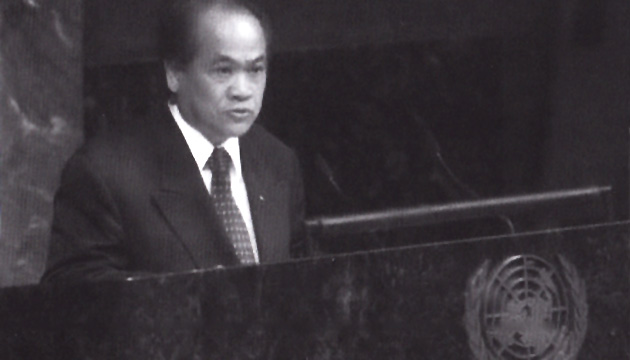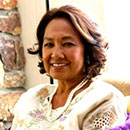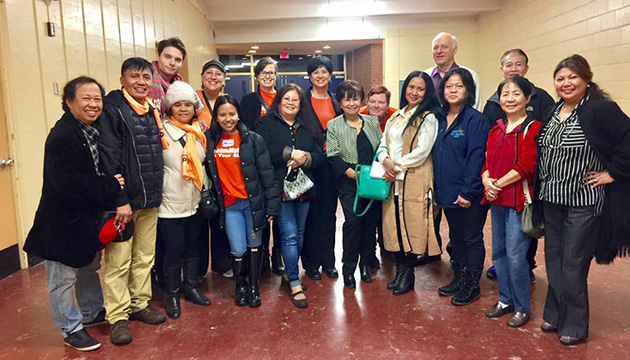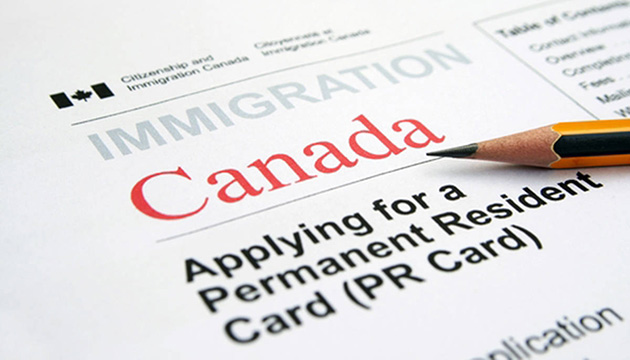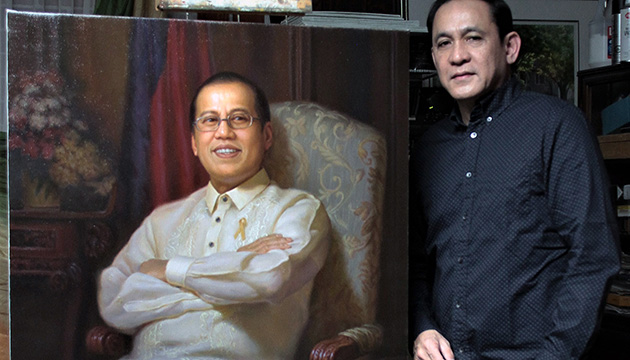Dr. Rey D. Pagtakhan was the first Canadian Filipino elected as Member of Parliament. He was a cabinet minister in the governments of then prime ministers Jean Chrétien and Paul Martin. Through this interview, the Canadian Filipino Net distills some pointers from his remarkable Canadian political journey.
Eleanor Guerrero-Campbell: People encourage other people to run for office all the time. Who do you think should run for public office? What are the qualities you have seen in people that make for good politicians?
Rey D. Pagtakhan: Only those capable of sealing at election time a covenant to serve the people, not themselves, and deliver on this pledge should run. Citizens who have a record of accomplishments and community work experience; have talents, people skills and common sense; are determined to quickly learn the requirements of the office; and embody the noble calling and values of our parliamentary democracy should consider running for Parliament. One need not have an initial after one’s name.
The basic qualities I have seen in people that make for good politicians mirror the basic qualities of good citizens – respect for people and the rule of law. Additionally, politicians ought to be a beacon of trustworthiness, integrity and ethical behavior since public office is a public trust.
Other admirable qualities are best discerned from the lens of journalists through their positive portrayal of certain politicians:“thoroughly decent; speaks in a learned and dignified way; showing courage and principle; more intent on problems than partisanship; assiduous, astute and positive; inspires confidence; pursuing a noble calling; articulate; hard-working; magnetic ability; down-to-earth; open-minded; radiates sincerity; deeply humble; relate to many different groups; does not place personal gain above the public interest; straight-arrow politicians who never forget why and who they were called to serve.”
EGC: What is your best advice to Filipino Canadians aspiring for public office?
RDP: Firstly, I will ask them to continually remind ourselves that public office is a noble calling, not simply like any other job. Secondly, MPs must “serve the best interests of the country” when they shape the laws and policies that define the character and conduct of all our citizens and determine their well-being. Thirdly, a more diverse Parliament better reflects the hopes of the citizenry it serves and the presence of Canadian Filipinos in Parliament would widen its diversity and bring valuable perspectives to national decision-making which affects not only Canada but also other nations.
Then I will advise them to go for it, be prepared to work hard and humbly, be realistic but persevere, and be worthy of the pride and trust of fellow Canadians.
…“Never believing that “quota based on color” should dictate appointments he (Pagtakhan) successfully obtained the appointment of several Filipinos in Manitoba, Saskatchewan, Alberta, British Columbia and Ontario to a number of high profile quasi-judicial tribunals and boards.”
-Eleanor del Rio-Laquian, Aprodicio A. Laquian: Contributions to Political Life
Seeking a Better Life Abroad: A Study of Filipinos in Canada (1957-2007),
Manila, Anvil Publishing Inc., 2008, pp. 360-361
EGC: How would you sum up your parliamentary journey? Could you share some stories of how your work impacted the lives of not only Canadian Filipinos, but Canadians as a whole, and the international community?
RDP: Except for apprehensions at the outset, it was a journey worth taking. The path I travelled –the House of Commons avenue – presented many challenges-turned-opportunities to champion as causes for the betterment of a greater number of Canadians and of people beyond our borders. Humbly and gratefully, I feel a sense of overwhelming joy to have come to the fore and to have contributed the best of my skills, insights and judgment.
I was the Critic for Health when news broke out in March 1989 of Canadian children with hemophilia having received blood tainted with HIV (the virus that causes AIDS). I challenged the Minister of Health to set up a special fund to help hemophiliacs with AIDS. Also, I called for a commission of inquiry into our nation’s blood system. A compensation package was established and Canada now has a modernized blood system – the Canadian Blood Services.
“In his six years in Parliament, he has accomplished more than most backbenchers do in an entire career. And he’s done it without making deals, trading favors or indulging in political theatrics. In the process, he has become one of the best-liked and most widely respected members in the House. He has chalked up a fair number of successes… He believes one MP can make a difference by being patient, picking issues that matter and treating other members with respect. There may be faster ways to get ahead. But Pagtakhan wants to leave something permanent behind.”
- Carol Goar (Columnist):Soft-spoken Winnipeg MP gets results without pushing
Toronto Star, 19 April 1994
In effect, I was handed a major constituency project when the President of the Seven Oaks General Hospital and the Chair of the Board of Trustees of the Hospital Foundation brought me a proposalin early 1994 for a facility that will “provide the community with services that promote health, prevent illness and disability, and restore wellness.”On July 28, 1994 I said: “This particular infrastructure announcement has a two-fold prescription – one for the health of the economy and another for the health of the citizenry.” The Wellness Institute opened on November 4, 1996.
In October 1996, Immigration Minister Lucienne Robillard invited me to join her in Winnipeg to witness the signing of the Canada-Manitoba Immigration Agreement - popularly known as the Provincial Nominee Program - “to provide a provincial role in decisions relating to selection and recruitment.” It took only a few months from the time the Manitoba Business Council briefed our caucus on the need for this Program. It was timely that I had just then becomeParliamentary Secretary to Prime Minister Jean Chretien. This program has since been a major avenue for entry of Filipino and other immigrants.
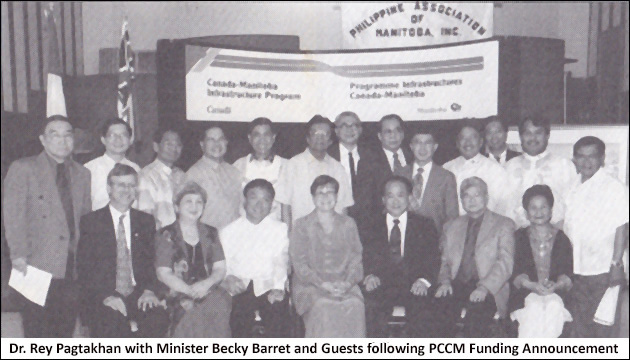
Funding for a new Philippine Canadian Center for Manitoba (PCCM) took time to obtain. The initial official response was negative. Disappointed, I brought the issue directly to Premier Gary Doer and Mayor Glen Murray. “Gary, Glen, I need your support for the PCCM,”to which they replied affirmatively. The PCCM file was re-opened. On June 11, 2001, I announced the $900,000 funding. The Center was inaugurated in July 2004. Speaking impromptu, I publicly conveyed our community’s gratitude to the three levels of government for making us realize our community dream.
It was a preventable tragedy! A boy about 10 was “swallowed” in a culvert beside the partially developed Leila Road in my constituency during heavy rainfall. As I stood still and heard the cries and felt the pains of the bereaved families, friends and neighbors who thronged together to mourn the tragic loss, I kept asking myself: “What could have prevented it?” As Regional Minister a decade later, I secured the concurrence of the city and the province to fully develop Leila Road. When I announced the funding, I remember saying: “One life lost is one life too many.”
We all remember the Philippines is a charter member of the United Nations. I cannot recall ever having a dream that on July 11, 2001 I would be delivering, as Secretary of State for Asia Pacific and Head of the Canadian delegation, the Canadian statement to the UN Conference on Small Arms and Light Weapons, which concluded with the adoption of a Programme of Action. I said: “The implementation of the Programme of Action requires partnerships not only among governments but also with international and non-governmental organizations.”
“Rey Pagtakhan…doggedly pushes Ottawa’s small-arms control message at UN against U.S. resistance.”
- Pagtakhan pushes small-arms control at UN
Maclean’s NewsMagazine, 23 July 2001
There were three outstanding issues when I arrived as Minister at the Department of Veterans Affairs: former prisoners of World War II who filed their claims long after the law granting benefits had been repealed; aboriginal veterans whose grievances remained buried in a report on the shelf; and regulations granting benefits to dependent children of members of the Armed Forces killed in the line of duty remained suspended. With a strong and dedicated team, we resolved all issues within the year.
Just as important were renovating a public swimming pool in a less affluent neighborhood; banning the sale of disposable cigarette lighters without childproof locks; labelling clearly the ‘best-before-date’ on packaged food and beverage; providing seed money to help build the International Center for Infectious Diseases; and advocating for federal funding to build the Canadian Museum for Human Rights and expand floodway protection in Manitoba.
Equally exciting was championing Canada’s Medicare as the crown jewel of our social programs when I tabled the Official Opposition resolution to preserve it in Canada and when I spoke of its merits, on behalf of Canada, at a conference in London (England), Osaka (Japan) and Manila. Debating in the House my resolution to establish an orderly process for accreditation of foreign-obtained credentials drew greater awareness to the issue. Hosting the Summit of University Presidents in Beijing during the 2001 Team Canada Mission, convening in Ottawa the Roundtable on Good Governance and the Philippines in 2001, and making a presentation on the Global Threat of Infectious Diseases at the G-8 Science Ministers’ Meeting in Berlin in 2002 were additional fulfilling experiences.
EGC: Your journey from the backbench of the Official Opposition to the cabinet table of the nation has, indeed, left its positive impact on the lives of many. You do Canadian Filipinos proud.
RDP: My pleasure to share my political story and be part of Canadian Filipino Net’s vision, mission and mandate.


